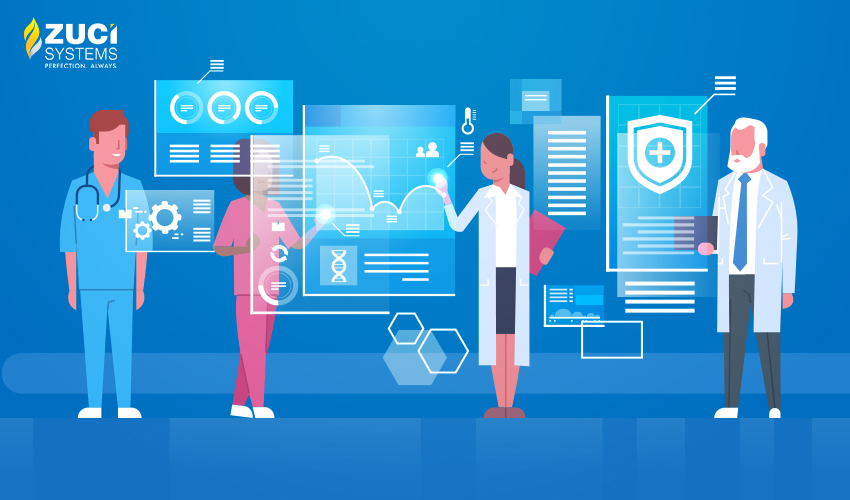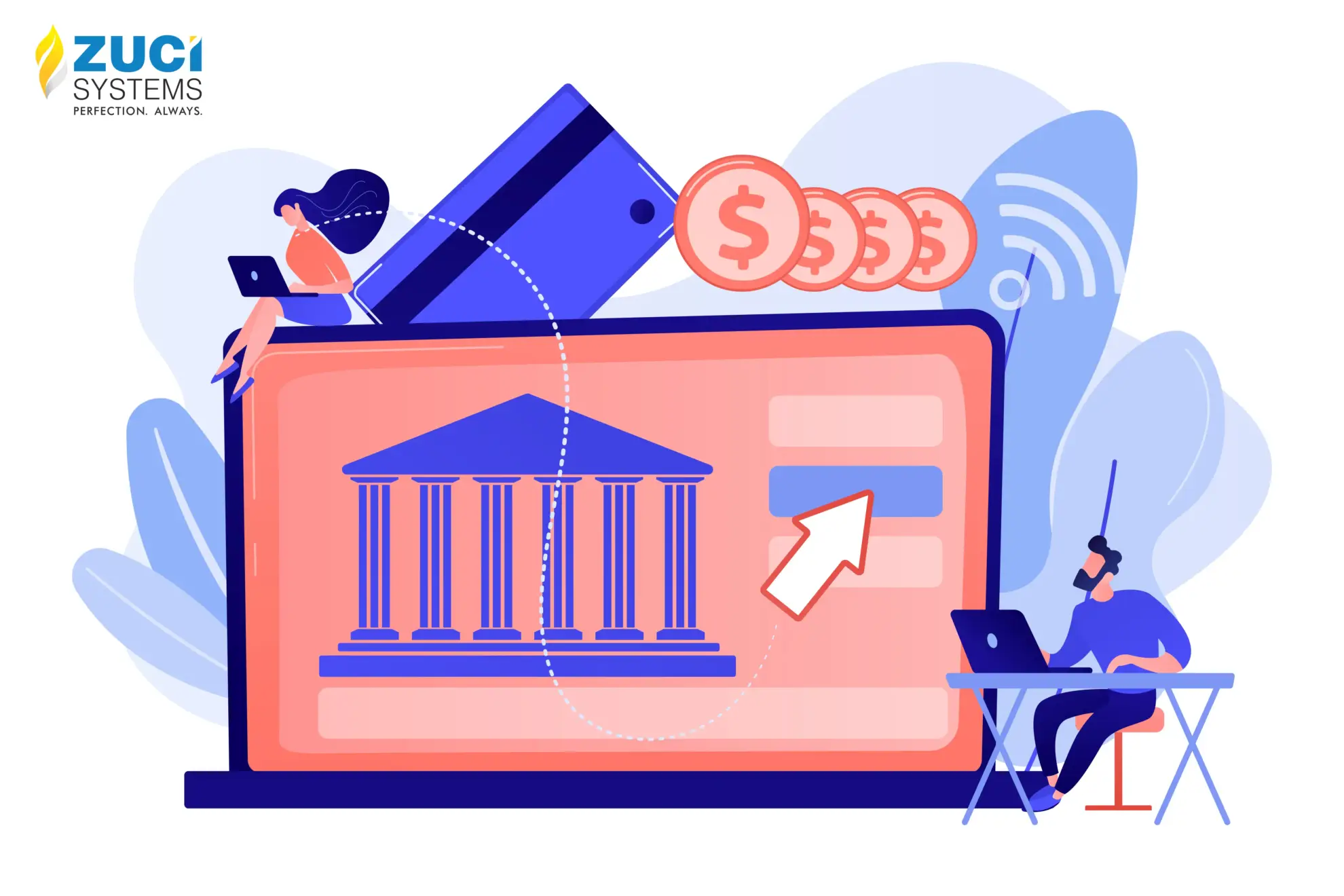Reading Time : 1 Mins
10 Reasons to Outsource Software Data Management
A web-analytics nerd, speaker - here delving into (Big)-data.
Why is Outsourcing Software Data Management So Popular?
In this blog, we’ll explore how the outsourcing practice aligns with the software development lifecycle and the compelling reasons why businesses are opting to entrust their data management endeavors to external experts. Whether you’re a decision-maker seeking to optimize your software data management processes or a CEO/CXO curious about the benefits of outsourcing, this blog will shed light on the practicalities, advantages, and best practices underpinning this strategic move. Read on to learn the merits of outsourcing software data management.
10 merits of outsourcing software data management
-
Expertise and Specialization
Outsourcing software data management grants your organization access to a team of professionals who specialize in the intricacies of software development lifecycle. These experts bring a wealth of knowledge in best practices, tools, and techniques, ensuring your data is treated with meticulous care and precision.
From data integration to governance, their deep understanding of the nuances helps optimize your data management strategy. This specialization translates into enhanced data organization, improved data quality, and better decision-making based on reliable insights.
Realtime Insights:
- Evolving Data Regulations: In a landscape where data privacy regulations like GDPR, CCPA, and HIPAA constantly evolve, outsourcing to specialists ensures that your software data management practices remain compliant.
- Complex Data Integration: When merging data from diverse sources like CRM systems, IoT devices, and social media platforms, specialists can seamlessly integrate the data hassle-free.
- Predictive Analytics Precision: Organizations relying on predictive analytics require high-quality historical data. Data management specialists curate and maintain datasets optimized for predictive modeling. Their expertise ensures that your algorithms are fed accurate and reliable data, enhancing the accuracy of your predictions.
Read More: Zuci Systems’ Data Management Services
-
Cost Efficiency
Internal software data management can place a substantial burden on your resources. The in-house approach demands investments in technology infrastructure, skilled personnel, and ongoing training to stay updated with evolving data management practices.
Conversely, outsourcing shifts these financial responsibilities to a third-party provider. This transition to a service-based model offers cost predictability, often resulting in significant cost savings. Through outsourcing, your organization can allocate resources more strategically, focusing on core business operations that drive revenue growth.
-
Focus on Core Competencies
Outsourcing software data management relieves your organization from the time-consuming responsibilities of overall data handling activities. This liberation empowers your internal teams to redirect their energies toward core business functions. By leveraging external expertise for data management, your organization can intensify its focus on developing innovative products, optimizing customer experiences, and devising market-disrupting strategies.
-
Advanced Technologies
Staying abreast of evolving data technologies is pivotal for efficient software data management. However, implementing and maintaining these technologies can be daunting. Outsourcing partners specialize in keeping up with the latest data management trends, and their proficiency ensures your organization’s software data is stored securely, processed efficiently, and analyzed using state-of-the-art techniques. Such technological alignment positions your organization to extract deeper insights from your software data, thus driving more informed decision-making.
Realtime Insights:
- Healthcare Data Insights: Healthcare providers can outsource data management to tap into advanced technologies like data mining and natural language processing. These tools can sift through patient records and medical literature, generating insights that inform diagnosis, treatment plans, and medical research.
- Financial Fraud Detection: Financial institutions face the challenge of detecting increasingly sophisticated fraud schemes. Outsourcing software data management allows for implementing advanced anomaly detection algorithms, machine learning models, and real-time transaction monitoring, enhancing fraud detection accuracy whilst minimizing false positives.
-
Scalability and Flexibility
As your organization expands, the volume and complexity of data also grows. Outsourcing software data management equips you with the flexibility to scale resources forward or backward in response to changing data needs. This adaptability ensures that your data management infrastructure remains resilient, even during peak usage.
Real-time Insights:
- Healthcare Data Peaks: Hospitals often encounter spikes in patient data during flu seasons or public health emergencies. Outsourcing data management allows healthcare providers to effortlessly expand their infrastructure to accommodate the influx of patient records, facilitating timely and accurate medical decisions.
- IoT Data Burst: Companies leveraging the Internet of Things (IoT), face periodic data bursts from connected devices. Outsourcing data management ensures that the infrastructure can accommodate sudden spikes in data generated by these devices, enabling real-time insights and responsive actions.
-
Reduced Risk & Increased Data Security
The data security and compliance landscape is evolving rapidly, with potentially catastrophic consequences for non-compliance or data breaches. Since outsourcing partners are well-versed in industry standards and regulatory requirements, they establish and maintain robust security measures and compliance frameworks to shield your data from threats. This risk mitigation strategy safeguards your organization’s financial stability and reputation, assuring stakeholders that data is treated with the highest degree of confidentiality.
Realtime Insights:
- Financial Compliance: Financial institutions must adhere to complex financial regulations, including anti-money laundering (AML) and Know Your Customer (KYC) requirements. Outsourcing data management ensures customer data is handled according to these regulations, minimizing the risk of regulatory fines and reputational damage.
- Intellectual Property Protection: Organizations with valuable intellectual property often have trade secrets and proprietary data to safeguard. Outsourcing data management entails implementing access controls, encryption, and data classification, ensuring that sensitive information remains confidential thereby reducing the risk of corporate espionage.
-
Enhanced Data Quality for Decision-Making
Outsourcing software data management translates into enhanced data quality through rigorous data cleansing, validation, and enrichment processes. These processes weed out inaccuracies and inconsistencies that often plague large datasets. Clean, accurate data helps make informed decision-making, empowering your organization to execute strategic initiatives confidently.
Realtime Insights:
- Financial Reporting Accuracy: Financial institutions preparing reports for regulators and stakeholders require accurate data. Data management services comprise data validation, leading to error-free financial statements, bolstering investor confidence, and ensuring regulatory compliance.
- Healthcare Treatment Plans: Healthcare providers require reliable patient data to make informed medical decisions. Outsourcing data management cleanses and validates patient records, enhances treatment plan accuracy, and reduces medical errors, ultimately improving patient outcomes.
-
24/7 Monitoring and Support
Software downtime can disrupt operations and hinder productivity. Outsourcing partners often provide 24/7 monitoring and support, ensuring your data systems operate seamlessly around the clock. Swift issue detection and resolution prevent potential data hiccups from escalating into larger-scale problems, thus maintaining uninterrupted data availability.
Realtime Insights:
- Cloud Services Reliability: Businesses leveraging cloud services need constant access to data. Data management service providers include 24/7 monitoring of cloud infrastructure, ensuring uptime for applications, and preventing disruptions that could affect user experiences.
- Financial Transactions: Financial institutions rely on uninterrupted data availability for real-time transactions. The outsourcing team’s vigilant monitoring prevents system outages, ensuring customers can conduct transactions seamlessly.
-
Faster Insights
Data analysis is a cornerstone of business insights, but the process can be time-consuming. Efficient data management processes facilitated by outsourcing expedite the journey from raw data to actionable intelligence. The agility of swift data processing and analysis results in rapid insights, empowering your organization to promptly address emerging trends and seize opportunities as they arise.
Realtime Insights:
- Fraud Detection: Financial institutions need quick insights to detect fraudulent transactions. Outsourcing data management expedites the analysis of transaction data, enabling the timely identification of unusual patterns and swift prevention of potential fraud.
- Healthcare Analytics: Healthcare providers need rapid insights from patient data for clinical decision-making. Outsourcing data management facilitates efficient data processing, allowing medical professionals to diagnose and treat patients promptly based on up-to-date information.
10. Strategic Focus
Outsourcing software data management liberates your internal teams from the day-to-day operational intricacies of data management. This liberation enables them to focus on strategic planning and innovation, fostering a culture of forward-thinking initiatives. As they dedicate their energies to driving your organization’s long-term objectives, you position your business for sustained growth and market leadership.
Realtime Insights
Financial Product Development: Financial institutions can dedicate resources to developing innovative financial products and services. Outsourcing data management ensures that regulatory compliance and data security are handled externally, allowing internal teams to focus on designing competitive financial offerings.
Zuci Systems: Your Software Data Management Solution Partner
Ultimately, the journey towards outsourcing software data management is strategic, and the benefits extend far beyond immediate financial gains. As we navigate the complexities of the modern business landscape, the decision to outsource data management is the catalyst that propels organizations toward sustained success and continued growth.
As a seasoned technology service provider, Zuci Systems has been a solution-driven partner for many organizations to manage their data and drive insights.
Get in touch with us to manage your organization’s software data.
Related Posts





















